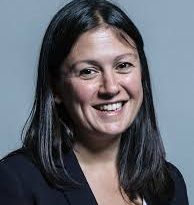Nick Hurd – 2019 Statement on the Police Surveillance of Journalists
Below is the text of the statement made by Nick Hurd, the Minister for Policing and the Fire Service, in the House of Commons on 17 July 2019.
It cannot be said often enough that the Government are committed to protecting the free press and freedom of expression in this country. The Government agree—indeed, they forcefully advocates—that confidential journalistic material and journalists’ interaction with their sources must be protected. However, that does not mean that journalists should receive blanket protection from legitimate investigation simply because of their chosen profession. Our security and intelligence and law enforcement agencies will, in very limited circumstances, have a legitimate need to investigate a journalist or that journalist’s source, but there need to be protections in that regard.
We believe that the Investigatory Powers Act 2016 provides strong protections in relation to the use of investigatory powers for the purpose of identifying or confirming a journalistic source and for the obtaining of confidential journalistic information. This ensures that protections are applied where they are required and that those who commit a crime or pose a threat to national security can be investigated regardless of their chosen profession, and it does so in a way that is compatible with all our ECHR obligations.
For example, where a targeted communications data authorisation under part 3 of the Act is made with the purpose of identifying or confirming a source of journalistic information, section 77 of the Act requires that, other than in threat-to-life situations, the authorisation must be approved by a judicial commissioner before it can take effect. In deciding whether to approve such an authorisation the judicial commissioner must have regard to the public interest in protecting the sources of journalistic information and the need for there to be another overriding public interest before a relevant public authority seeks to identify a source.
The codes of practice under the Act provide detailed and extensive guidance to public authorities when applying the powers in the Act, including extensive guidance on when those safeguards should be applied.


